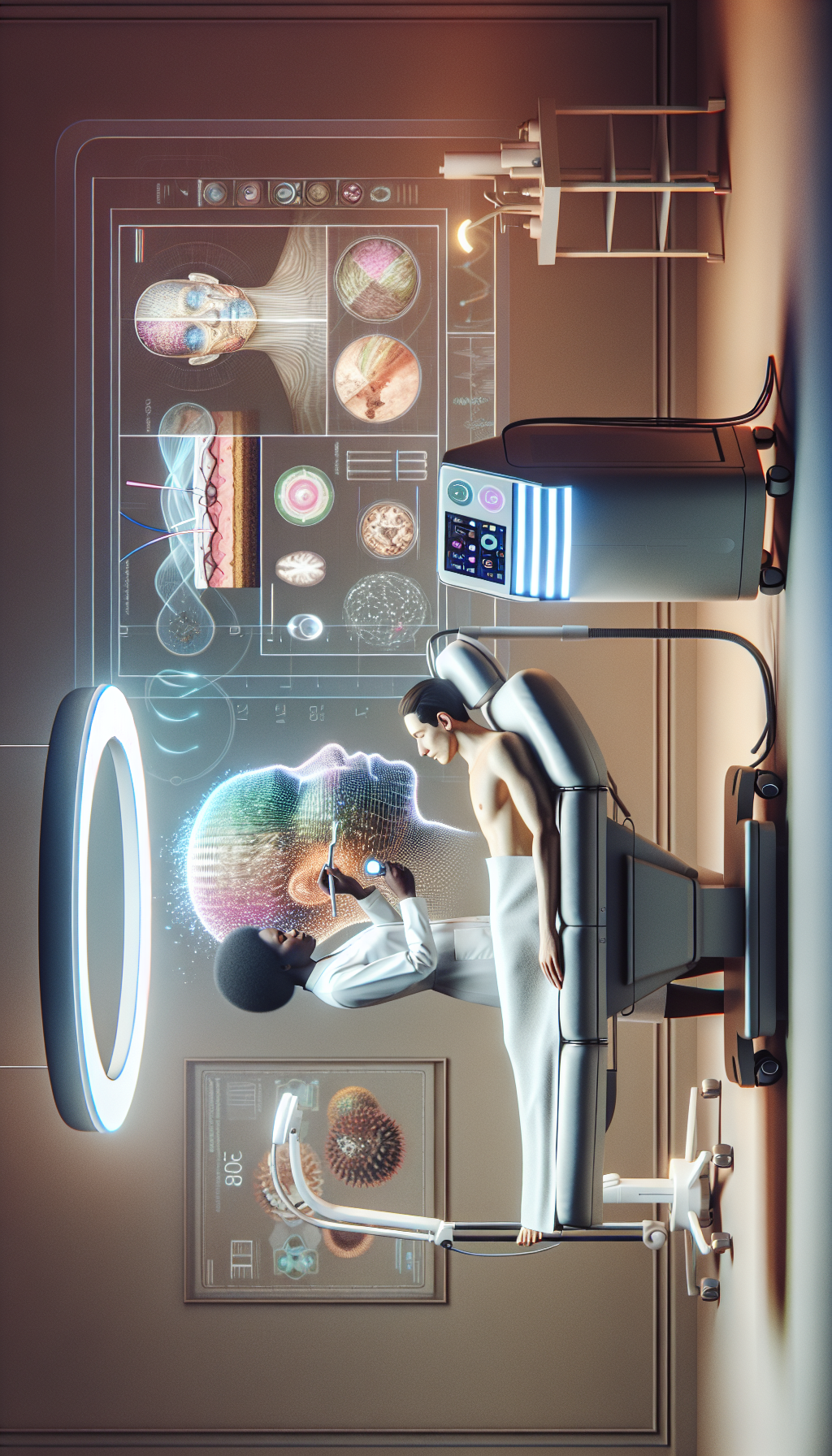In the realm of personal care, skin health emerges as a paramount concern, reflecting not just our physical well-being but also our confidence and self-perception. With the advent of cutting-edge technologies, the skin care industry is experiencing a monumental shift, offering solutions that are as innovative as they are effective. Here, we explore the burgeoning advancements in skin care technology and their multifaceted benefits.
The Evolution of Skin Care Technology
The journey to flawless skin has come a long way from traditional creams and serums. Today’s technologies are grounded in scientific research and clinical evidence, providing targeted treatments and personalized care. These advancements range from wearable devices that track skin’s health in real-time to intricate procedures that address the skin at a cellular level.
Cutting-Edge Devices and Techniques
One of the latest innovations is the use of LED light therapy, which employs varying wavelengths of light to treat skin issues such as acne, aging, and hyperpigmentation. This non-invasive technique has gained traction for its ability to stimulate the body’s natural healing processes. Users can now enjoy the benefits of this technology at home with handheld devices, making it more accessible than ever.
Another breakthrough is the development of advanced laser treatments. These procedures can diminish fine lines, wrinkles, and scars by removing the outer layers of skin, promoting regeneration, and stimulating collagen production. Fractional lasers, in particular, have revolutionized skin resurfacing by targeting only a fraction of the skin at a time, which significantly reduces recovery periods.
Personalized Skin Care
In the spirit of personalization, AI and machine learning have taken center stage. These technologies analyze a person’s skin condition, lifestyle, and environmental factors to recommend custom product formulations. This bespoke approach ensures that individuals receive skin care regimens tailored specifically to their needs.
Furthermore, 3D printing technology has made its way into the production of personalized skin patches and masks. These are designed to fit the unique contours of an individual’s face, enhancing the delivery of active ingredients where they are most needed.
The Intersection of Skin Health and Overall Well-Being
Skin health is inextricably linked to overall health, and innovations in skin care often draw from broader medical research. For instance, the role of antioxidants in skin care has been a significant focus, highlighting their ability to combat oxidative stress and prevent premature aging.
Similarly, understanding the impact of sleep quality on skin aging has led to the creation of overnight skin treatments that work in harmony with the body’s natural repair cycle. These products are formulated to support rejuvenation during sleep, when the skin is most receptive to healing.
Enhancing Skin Care Through External Resources
As we delve into these technologies, it is crucial to reference high-quality external resources that support our points. For instance, the International Dermal Institute offers in-depth insights into the science behind skin care technologies, while the American Academy of Dermatology provides guidelines for safe and effective use of at-home devices.
Additionally, there are niche resources such as the Society for Investigative Dermatology, which publishes cutting-edge research on skin health, and the Skin Cancer Foundation, which offers valuable information on how to protect and monitor skin for signs of cancer.
The Role of Diet and Lifestyle in Skin Health
While technology plays a significant role in skin care, it is also essential to consider the impact of diet and lifestyle. The link between nutrition and skin condition cannot be overstated. As such, understanding how diet affects skin health over time is vital for anyone looking to maintain a radiant complexion.
Moreover, the skin’s elasticity and its capacity to withstand environmental stressors are influenced by factors like hydration, exercise, and stress management. These aspects of wellness are discussed in depth on platforms such as the Skin Health section on Avix Health, which provides a holistic view of skin care beyond just the latest gadgets and ointments.
Navigating Sensitive Skin and Allergic Reactions
Innovations in skin care also address the needs of those with sensitive skin or allergies. Resources such as the National Eczema Association offer guidance on identifying and managing skin sensitivities and allergic reactions. For those seeking solutions in this area, exploring guidelines for sensitive skin care and reduction of irritation can be particularly enlightening.
Future Directions in Skin Care Technology
The future of skin care technology holds even more promise with ongoing research into areas like genomics, which could lead to hyper-personalized skin care regimens based on an individual’s genetic makeup. Additionally, the use of stem cells in skin rejuvenation and repair is a burgeoning field with the potential to revolutionize how we approach aging and skin damage.
These future technologies, coupled with the current advancements, underscore the dynamic nature of skin care. As we continue to harness the power of science and innovation, the quest for healthy, radiant skin becomes not just a possibility, but an ever-evolving reality.
In conclusion, the landscape of skin care is being reshaped by innovative technologies that offer personalized, effective solutions for a myriad of skin concerns. From LED light therapy to 3D-printed skin patches, the integration of science and technology into our skin care routines promises a future where the health and beauty of our skin are enhanced in ways previously unimagined. As we embrace these advancements, it is essential to remain informed and cautious, seeking out high-quality resources and professional advice to ensure that we are caring for our skin in the best way possible.



